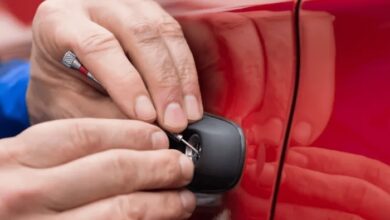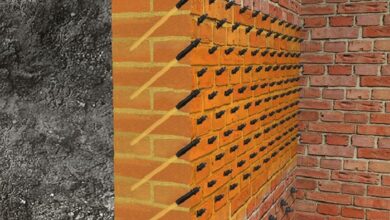Keeping engines clean: the role of fuel water separator filters

Every boater knows that the reliability of an engine can make or break a trip. Out on the water, there are no roadside repair shops or easy tow trucks. If your engine fails, your options are limited, and safety can quickly become a concern. This is why maintenance is one of the most important aspects of boating. At the heart of proper engine care lies an often-overlooked component: Fuel Water Separator Filters.
Why water is a problem in fuel
Water and fuel don’t mix well—literally or practically. While small traces of water in fuel may seem harmless, they can cause significant problems over time. Water can enter the fuel system through condensation in the tank, contaminated fuel stations, or even leaks in the system.
Once water is in the fuel, it leads to corrosion, poor combustion, and even engine failure. Diesel engines are particularly vulnerable, as water promotes the growth of microorganisms that can clog filters and damage components.
This is where Fuel Water Separator Filters play a critical role by preventing water from ever reaching the engine.
What fuel water separator filters do
A Fuel Water Separator Filter is designed to remove water and contaminants before they reach the engine. It typically consists of a filtration system that traps particles while allowing clean fuel to pass through. The separated water is collected in a chamber that can be drained manually.
By doing so, these filters protect the engine from rust, wear, and inefficiency, ensuring smoother and longer-lasting performance.
Protecting the heart of the boat
The engine is often considered the heart of a boat. Just as the human heart relies on clean blood, an engine relies on clean fuel. Introducing water into the system is like introducing impurities into the bloodstream—it weakens performance and can cause irreversible damage.
By installing and maintaining Fuel Water Separator Filters, boaters essentially give their engines a protective barrier, extending both their lifespan and reliability.
Signs of water contamination
Boaters should always be alert to the symptoms of contaminated fuel. Common signs include:
- Difficulty starting the engine
- Loss of power during acceleration
- Unusual sputtering or stalling
- Increased smoke from the exhaust
- Frequent clogging of standard fuel filters
If these issues arise, water in the fuel is a likely culprit. Having a proper separator filter installed can prevent such problems from developing in the first place.
Fuel quality across regions
One of the challenges of international boating is the variation in fuel quality. In some regions, fuel storage and handling practices may not meet high standards, increasing the risk of contamination. Even in well-regulated areas, fuel may degrade over time or absorb water during storage.
This makes Fuel Water Separator Filters essential not just for long-distance cruisers but also for local boaters who want peace of mind every time they refuel.
Maintenance and care
Like any equipment, filters require regular attention to function effectively. Boaters should:
- Inspect regularly – Check for water buildup in the filter bowl.
- Drain when necessary – Empty the water chamber before it overflows.
- Replace elements periodically – Follow manufacturer recommendations for replacement intervals.
- Carry spares – Always have an extra filter onboard in case of emergencies.
Simple routines like these ensure the system continues to protect the engine trip after trip.
Fuel efficiency benefits
Clean fuel not only protects the engine but also improves efficiency. Contaminated fuel burns less effectively, leading to wasted energy and higher consumption. Over time, this adds to costs and environmental impact.
By ensuring a clean supply, Fuel Water Separator Filters help maximize fuel economy and reduce emissions, benefiting both boaters and the waters they travel.
Safety at sea
Few things are more dangerous than an engine stalling far from shore. Without propulsion, a boat is at the mercy of winds and currents. Reliable fuel systems are, therefore, a safety measure as much as a performance concern.
Filters play a key role in this safety net. By preventing water-induced engine failures, they ensure that boaters can return to harbor safely even in challenging conditions.
Modern advancements
Today’s Fuel Water Separator Filters have advanced designs that make them even more effective. Transparent bowls allow for quick visual checks, while multi-stage filters can handle finer contaminants. Some systems even come with sensors that alert boaters when water levels are too high, adding an extra layer of protection.
As boating technology continues to evolve, filters remain a quiet but indispensable part of the progress.
Lessons for new boaters
For those new to boating, it’s tempting to focus on visible equipment—engines, sails, electronics—while overlooking smaller components. But experienced sailors know that the smallest details often make the biggest difference. Installing and maintaining a reliable filter system is one of the smartest investments any boater can make.
It ensures that the fuel system remains dependable, the engine runs smoothly, and unexpected breakdowns are avoided.
Conclusion
Boating is about freedom, exploration, and the thrill of the open water. But all of these experiences depend on one essential factor: a reliable engine. Protecting that engine starts with clean fuel, and clean fuel requires Fuel Water Separator Filters.
By removing water and contaminants, these filters safeguard performance, efficiency, and safety. For boaters everywhere, they are a simple but vital piece of equipment that ensures adventures remain smooth and worry-free.



